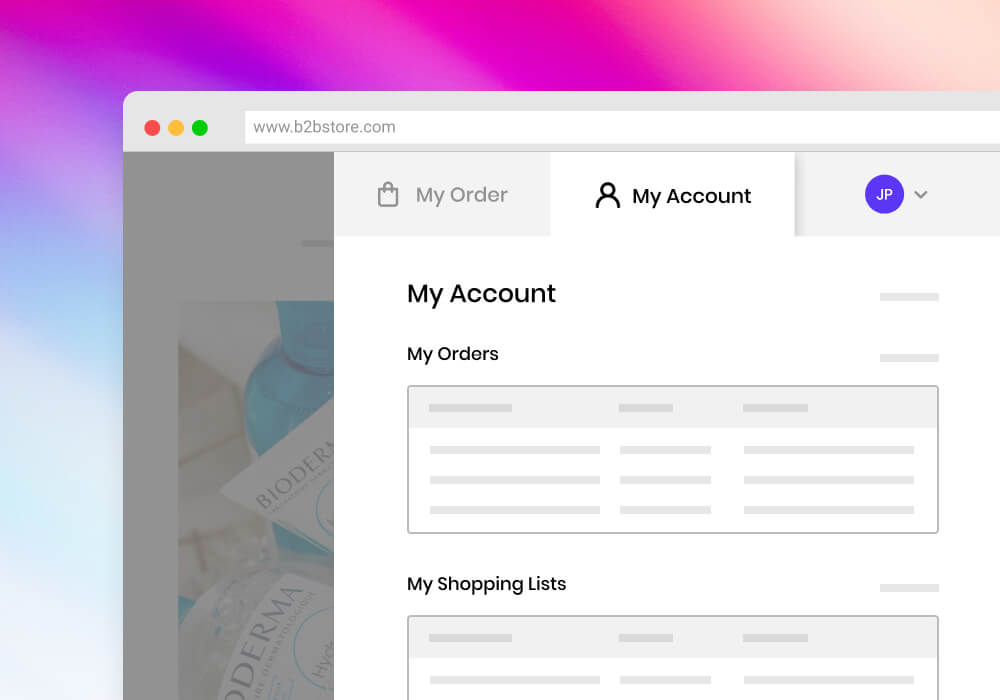With more and more brands digitising their B2B ecommerce experience, one of the key driving forces is implementing new methods to automate previously manual and time consuming activities. One area this particularly applies to is around delivering a self-service experience to the end B2B customer, empowering them to manage large parts of the ordering and account management process without needing intervention.
In this article, we’re going to hone in on a core part to this; the customer account area, sometimes referred to as the "My Account" area. A well-designed and self-service customer account area can provide a more seamless and efficient experience for B2B customers, saving them time and ultimately creating more loyalty with your brand. We’ll run through some of the key concepts and features you should consider when implementing a customer account area - so let’s dive in!
Considerations in the customer experience
If you’re in the process of building your next B2B store or evaluating incorporating B2B onto your existing ecommerce setup, you’ve almost certainly given considerable attention to the overall customer experience. For example, how the homepage and product pages look and how they are best presented to your customers. The customer account area should be no different. Customers today expect an easy way to access their account details, manage key activities, and above all having a seamless and easy way to do so. Ideally this should all happen within your existing store without requiring the customer to access a separate portal or system which can create a very disjointed user experience.
Order history and tracking
The most essential element to a B2B customer account area is allowing customers to track the orders they place with you. Each time a customer engages with you and transacts, they need an easy way to review the items ordered, track shipment status, and ideally have an easy way to repeat orders.
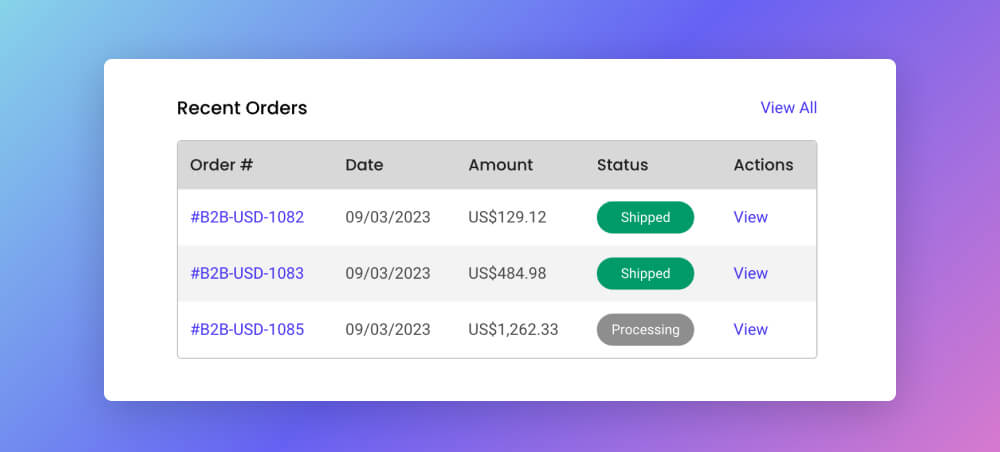
If you’re using a backend system to manage your B2B operation (such as an ERP), you should also consider how you can integrate and synchronise ‘offline’ orders also, such as those placed over the phone by a sales agent.
Shopping lists
The B2B ordering journey differs from DTC and it’s not uncommon for B2B customers to need to regularly repeat orders (such as those for perishable goods).
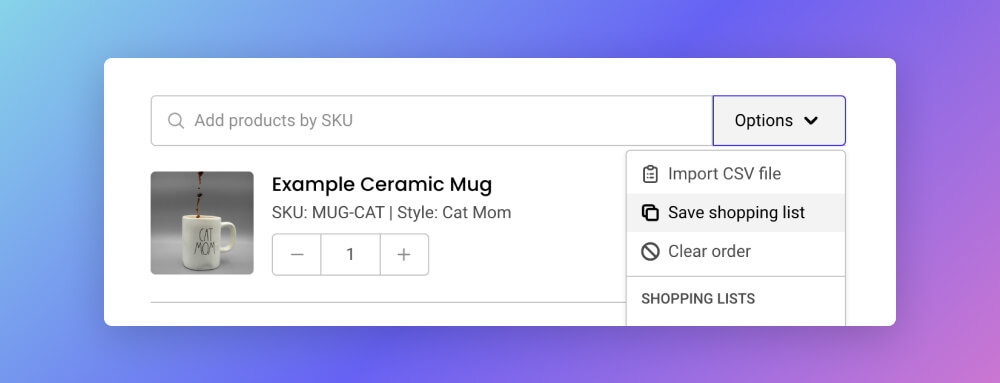
A shopping list - or wish list - is a great way for customers to save products for later, allowing them to quickly sign in and place an order. In just a few clicks, they should be able to quickly populate their cart (or order), make edits, and proceed through the checkout to complete the process.
Address book management
If a B2B customer has multiple locations (such as a retail store), the customer account area should allow an easy way to manage their shipping locations.
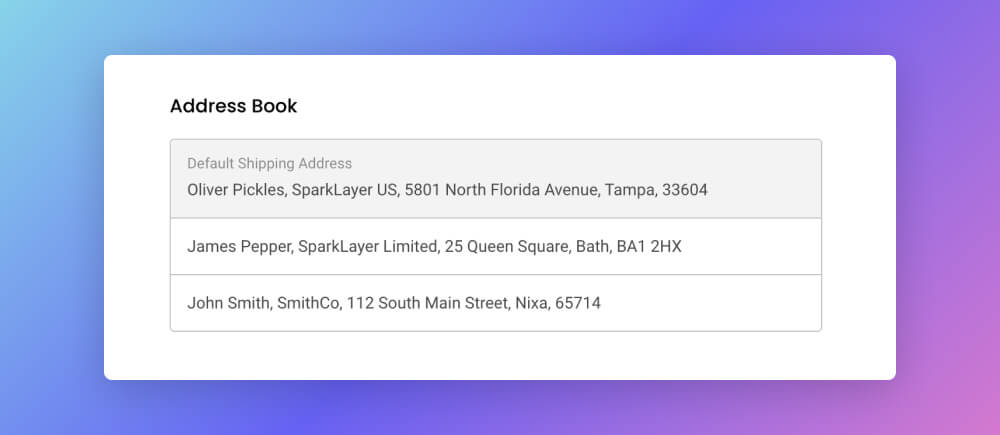
Address books are an easy way to store approved destination addresses, set defaults, and even control which customers can and can’t select them during the checkout process.
Account credit
Many brands and wholesales operate on some variety of account credit. This lets them define the credit terms (such as credit limits) for their customers, and is a way to both facilitate easier ordering, but also control the spending of certain customers.
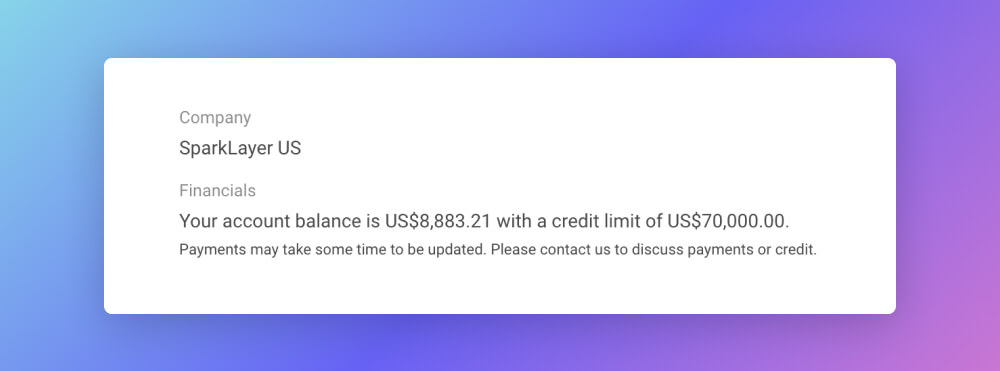
Within the customer account area, there should be a clear way for customers to check their credit balance and ideally offer an easy way to adjust this if credit limits are being reached
Teams and access privileges
Another key area where B2B ordering differs from DTC is who places the orders. B2B customers often operate in teams where invited users can log in, place orders, and manage key account activities.
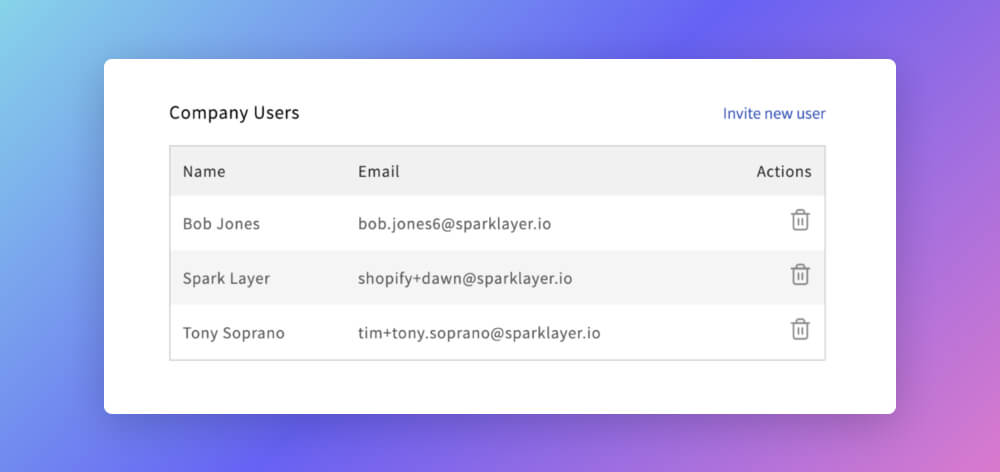
This may also be further extended with different access privileges, for example restricting specific users to only certain tasks. The customer account area should have an easy way for customers to create and manage teams, all with the goal of more seamless self service.
Account information
Key to self service is giving the customer the information they need without needing your intervention. One easy way to help towards this is by giving visibility to the customer if they keg account information. This could include credit details as noted above, their contact information (such as their account managers details), and a clear way for them to see what data you have on file.
Customer spotlight
Whilst the above features may sound relatively small, they all accumulate to a fantastic customer customer account experience. In one central location, the customer should be able to fully self-service, freeing up your team to focus on other core business activities.
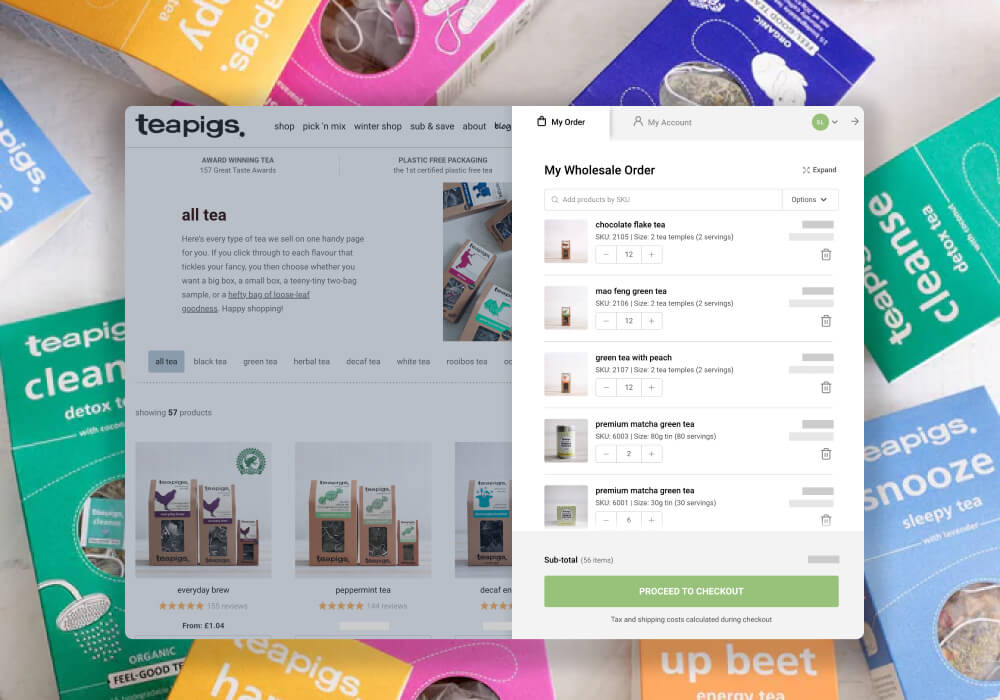
For SparkLayer customer, teapigs, this has gradually transformed the efficiency of their B2B operation:
“With SparkLayer integrating seamlessly with Shopify, this has brought a number of key improvements. Customers can order anytime, day or night and no longer need to wait for the teapigs team. Customers are loving the new functionality and teapigs are finally being able to deliver on feedback we’ve been receiving for years." ~ Reece Downey, Head of eCommerce, teapigs
Enabling a customer account with SparkLayer
At SparkLayer, our approach has always been to find ways to make B2B ecommerce simpler. Central to our solution is our powerful customer account area that combines all the above best-practises alongside rapid ways to build orders.If you're looking to streamline your company's self-service process and want to learn more, please feel free to request a demo here! You can also learn about how to perfect the registration process in our guide here.
















